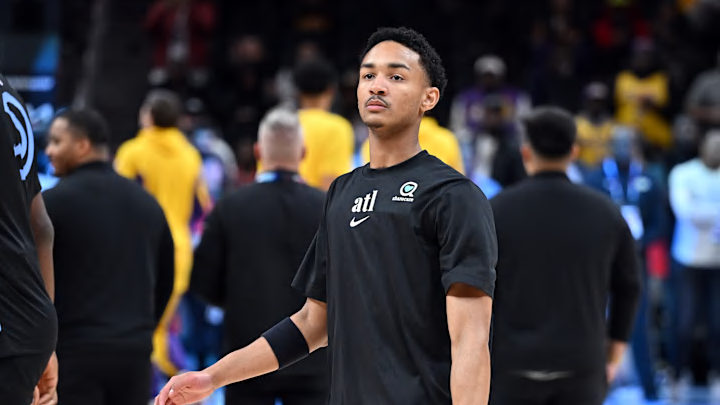The Atlanta Hawks were forced into a business decision this week, trading Kobe Bufkin to the Brooklyn Nets for cash considerations. The move clearly was made to create cap space for the club.
After the trade, Hawks insiders and fans both questioned the move. While Bufkin has not yet performed at the NBA level, he also hasn't had a fair chance due to his unfortunate injury luck. He turns 22 tomorrow and has up to two years remaining on his contract. Giving up on him in a salary dump appears to be a rash decision.
Sam Vecenie, however, thinks the opposite. Vecenie theorized that Bufkin is just the first player to fall victim to the change in mindset caused by the increased financial restrictions teams face. With such stringent salary requirements, teams no longer have the luxury of keeping borderline NBA players on the roster for extended periods of time.
Teams historically have kept players on rookie-scale contracts on the roster until the team is certain the player has no place in the squad. With how cheap rookie contracts are, there was no reason to sell low on these players. The new CBA, however, has placed artificial salary limitations that encourage teams to save money on the margins with moves like this.
This is the opposite of what the NBA intended with the new CBA
The most recent CBA was intended to create parity in the league, but its strict punishment for an expensive roster has led to many adverse effects.
Perhaps the clearest example of such consequences is the Boston Celtics, who no longer roster half of their 2024 title-winning team. The decisions Boston made were clearly made with cap space in mind, not player ability. While this situation worked in Atlanta's favor this time, picking up Kristaps Porzingis for peanuts during the fire sale, teams should not be forced to blow up Finals-winning rosters on a whim.
Hawks GM Onsi Saleh was ahead of the curve with this move, clearing out cap space before risking having to trade assets to offload Bufkin. This doesn't mean Bufkin's career is over - he actually has the best chance of his career to make an NBA impact this season.
Instead, this move is the first domino in what could be a heartbreaking trend. Teams should generally be encouraged to keep their young players. The new CBA has not encouraged teams to keep their in-house talent, a longstanding point of emphasis the NBA considers when bargaining.
While the next CBA will almost certainly be less harsh, there are five seasons left on the agreement. The Hawks and many other teams will find themselves in this situation again.
